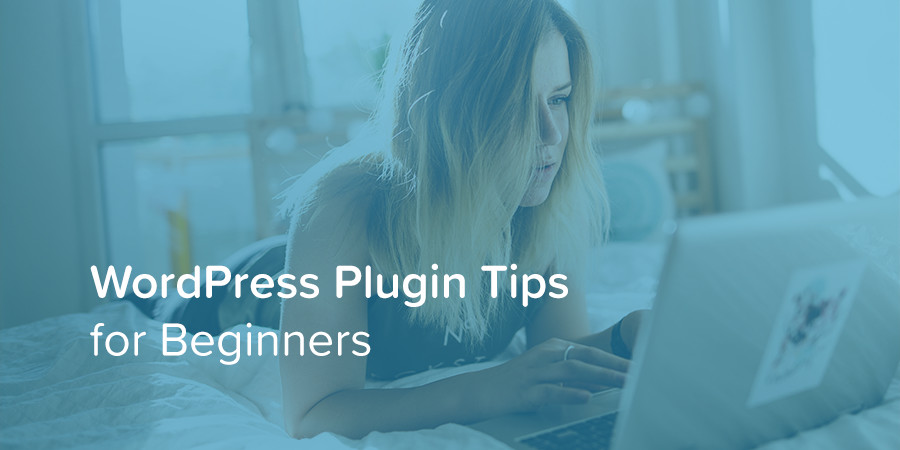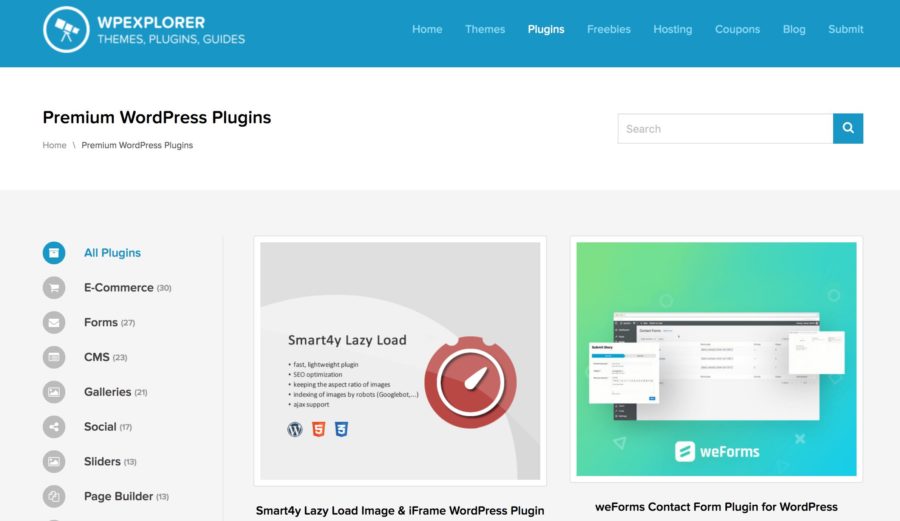10 Things to Know About Using WordPress Plugins

What would WordPress be without plugins? Our ability to extend the world’s favorite content management system in an almost limitless fashion is what makes WordPress so great. With nearly 25,000 plugins available on WordPress.org alone, the sky really is the limit.
But with great power comes great responsibility and it is an unfortunate fact that using WordPress plugins can have unsavory side effects if you’re not too careful. With that in mind, in this post I want to cover the most important things to keep in mind when using WordPress plugins on your WordPress site so that you can enjoy all of the extra functionality and avoid the pitfalls.
1. Update Your Plugins

This is a bit of a no-brainer but it bears mentioning in the interests of completeness: keeping your plugins updated is absolutely vital to the security and functionality of your blog. Out of date plugins are prime targets for those in search of security weaknesses and can also break when newer versions of WordPress and other plugins are released.
Not only should you regularly update your plugins, you should also periodically check your plugins to make sure that they have been recently updated. You should strongly consider removing plugins that haven’t been updated for an extended period of time (as a rule of thumb say one year).
Ideally you should be regularly updating your plugins (Note: Don’t want to forget? You could try the Easy Updates Manager to automate plugin, theme, and minor/major WordPress core updates).
2. Keep Deactivated Plugins Updated or Get Rid of Them
This follows on directly from my previous point: even if a plugin is not active on your site you must ensure that it is still updated. A deactivated plugin is still “live” on your site in the sense that it could be exploited as a security weakness. Incidentally, the same can be said for themes so my advice also applies there.
To be honest, if a plugin isn’t active on your site and you have no intention of using it in the future my advice would be to remove it. The last thing you want is for your site to become a graveyard of unused plugins — it pays to keep things clean and tidy.
3. Deactivate Backend Plugins When They’re Not in Use

Most plugins put a strain on your site’s resources, even if that strain is only minor. As such it is my recommendation that you only activate backend plugins when they are needed.
Take for example the WordPress Database Reset plugin. This great little plugin makes it easy to reset WordPress by returning all or portions of your WordPress database to their original, default state. However, the WordPress Database Reset plugin only needs to be active when you are running the reset – it can be deactivated at all other times.
In a nutshell, every single active plugin on your site should be utilized by your site. If not, deactivate it.
4. The Number of Plugins Isn’t Important
To put it in layman’s terms, a plugin is simply extra code that is implemented on your site. To an extent you could add the same code within your functions.php file and achieve the same effect.
Therefore, the number of plugins you have installed and activated on your site isn’t necessary a major issue. The major issue is how well coded and resource intensive your plugins are.
Let me put it this way: it would be far better for you to have five lightweight and immaculately coded plugins installed on your site than one bloated, resource intensive and vulnerable plugin. In reality you should be more worried about what plugins you are installing rather than how many.
5. The Number of Plugins Is Important
Having said that, there is one reason why the number of plugins you have installed on your site can be an issue: conflicts.
Theoretically speaking, the more plugins you have on your site, the more likely you are to find one that conflicts with another. Having to deal with plugin conflicts is an issue developers constantly face as there are a near-infinite number of setup combinations across all WordPress installations. Most WordPress blogs are completely unique in terms of the combination of plugins installed.
So although you should be mindful of the quality of plugins you use, you should also keep an eye on the number with a view to keeping things as simple as possible. In this case, less is typically more (don’t be a plugin hoarder).
6. Quality Always Beats Quantity

Along that same line of thinking, you should be very selective in deciding what plugins to install on your site. After all, every plugin you install may leave behind a footprint that is difficult to remove (especially if it is poorly coded). While it can be very tempting to test and install every plugin under the sun on your site, you should err on the side of caution and selectiveness.
When it comes to installing plugins you should look at a few key items such as:
- Number of downloads
- Average rating
- Reviews
- The developer (are they well-established?)
- Evidence of active support
The fact is that you’re not just installing a plugin – you’re installing a piece of functionality that you would like to remain functional for the foreseeable future. If the plugin works now that’s a good start but you want to make sure it will work in the future too.
For me, the decision to install a new plugin on my site is a pretty important one. I am careful to ask myself whether or not I really need the functionality or if I am being drawn in by the proverbial shiny lights. It might be worth you asking yourself that same question.
7. Premium Doesn’t Necessarily Mean Best
It’s a well-known fact of psychology that people’s perception of value is affected by cost. If I offer you the same thing free of charge or at cost, your perception of value is likely to change under the separate circumstances.
This phenomenon can sometimes be observed in people’s attitude towards premium plugins. The fact is this: there are plenty of unscrupulous premium plugin developers out there. Just because someone is charging you for a plugin does not make it good. There are an awful lot of extremely good quality free plugins out there developed by people who you can trust absolutely.
Having said that, the well-made premium plugins typically are the best. If you pick a reputable premium plugin developer you’re likely to enjoy the best functionality, top notch support and consistent updates. The key is to make sure that you’re supporting the “right” developer. Don’t just do a Google search and go with whatever shows up – find out who people are happy to personally recommend. Get involved in the WordPress community and make note of who is talked about in a positive light. Those are the people you should look to buy from.
8. Some Plugins Are Considered Vital for Almost Any Site

Yoast SEO is a useful tool for most types of WordPress sites.
In most cases, the plugins you install will depend on the kind of site you’re creating. An e-commerce store might require a shopping cart plugin, for example, while a photography portfolio can benefit from an image gallery tool. However, there are some plugins that almost every WordPress installation should include, no matter your site’s focus.
For example, you probably want to attract as many visitors as possible, so your site can always benefit from a solid Search Engine Optimization (SEO) plugin like Yoast SEO. Security is vital for keeping your site’s data and content safe, so a plugin such as Wordfence is always a smart bet. As another example, custom contact forms (like those created with Contact Form 7) are useful for enabling your visitors to get in touch, whether you’re running a blog, business site, or storefront.
Even if you think the kind of site you’re creating doesn’t require plugins, you may be surprised by how many options provide invaluable functionality. There are some WordPress plugins that every website owner should know about – whether or not you end up using them.
9. Plugins Can Integrate Your Site with Other Tools and Platforms

Google Analytics Dashboard for WP enables you to integrate your WordPress site with the popular analytics tool.
Plugins aren’t created in a vacuum. While it’s true that many are standalone options offering independent features, some are reliant on other software. In fact, there are many plugins designed to integrate your WordPress site with popular tools and platforms of all types. That means you can make those programs work smoothly with WordPress, without knowing a single line of code.
We can hardly cover all the available integrations, but here are just a few examples:
- Google Analytics Dashboard for WP. With this plugin, you can track your site’s performance using Google Analytics, and even see the results in your admin area.
- MailChimp for WordPress. If you’re using the very popular MailChimp email marketing platform, this plugin will enable you to add new subscribers to your list from your WordPress site.
- Custom Facebook Feed. This plugin adds your Facebook feed to your website, and lets you customize it. There are similar options for most of the popular social media networks.
So if you have some favorite tools you use every day to run your website or business, it’s worth checking to see if there’s a way to integrate them with your site. That way, you can streamline your workflow and not have to switch back and forth between platforms constantly.
10. There Are Multiple Places to Find Plugins Online

If you’re completely new to plugins, your best bet is to start with the WordPress Plugin Directory. These plugins are all free, and have been put through a vetting process. This directory also displays customer ratings and reviews, along with the number of WordPress sites currently using each plugin, so you know what you’re getting into.
However, this is far from the only place to find plugins online. Plenty of developers sell plugins through their own websites, and there are other directories with dozens, hundreds, or thousands of options. Keep in mind that most plugins not on WordPress.org will be premium, which means you’ll have to pay a fee to use them. The cost is often quite reasonable, though, and you’ll be able to find plugins that provide more complex, unusual, or targeted functionality.
If you’re just starting to branch out in your plugin search, here are a few places to get started:
- CodeCanyon: This is the largest directory of premium WordPress plugins online. You can find just about anything here, at prices staring as low as $2. You’ll also be able to view user reviews and ratings, and a great deal of information about each plugin.
- WPMU DEV: This is an excellent source of quality WordPress plugins, providing options in areas such as analytics, security, design, social media integration, and more. This site works a little differently from most directories, as you’ll need a membership in order to use the plugins. However, the $49 per month price tag can be a good deal if you find multiple plugins you want (especially if you’re running more than one site).
- WPExplorer: Finally, we would be remiss not to mention our own website! We offer a directory of free and reasonably priced plugins in a wide variety of categories, from e-commerce to page builders to SEO. Check it out, and you’re sure to find something that suits your needs.
Knowing where to find WordPress plugins opens up your options, and enables you to locate the best tools available. If you venture away from the suggestions listed above, just make sure you’re sticking with credible sites and developers. Always look for user reviews and ratings before purchasing new plugins, and remember to back up your site before installing them.
Conclusion
Plugins are one of the best things about using WordPress. However, the sheer number that are available may be overwhelming at first. It can be difficult to know which ones to choose, how to monitor them for conflicts, and how to manage them once you’ve built up a sizable collection.
However, using plugins to get the most out of your WordPress site doesn’t have to be challenging. You’ll just want to follow a few simple guidelines, such as downloading plugins from reliable sources, keeping them updated, and getting rid of the ones you don’t need. Once you’ve learned a few basic facts about plugins, such as those introduced above, you’ll be ready to start customizing your own site.
Do you have any questions about how to use WordPress plugins on your site or blog? Or additional advice to offer to other WordPress users? Let us know in the comments below!




Well you said it right! The number of plugins is not that important as opposed to what everyone says. I don’t understand people’s perspective towards such ignorance. Great read!
Nice post Tom, I’ve seen some horrendous set ups where users have installed a plethora of plugins just to do a few simple things but left the ones they don’t need – it’s no wonder things end up conflicting. Less is more!
I know exactly what you mean and agree wholeheartedly Elliott!
I think that wordpress should publice a list of good reputation and well coded plugins to protect users. There are a lot of plugins they do the same thing, but not all are well coded. This problem gets bigger as wordpress popularity grows up. I ‘m a “victim” of bad coded plugin…
Thanks for the article Tom!
No problem Antonis. I think the issue with your idea is that plugins that are “well coded” and with a “good reputation” are terms open to interpretation…
Very well written, as a WordPress web designer, I’m really careful about what plugins to use and I often read, and re-read before installing. That said, there some plugins I use all the time so I keep them in a folder and check to make sure I have the latest versions of them all, they’re also by developers I know and trust as well.
Hey Kim, thanks for stopping by as usual. It’s quite important as you say to use plugins that you trust and even if you don’t know the author usually with a simple Google search (if not a new plugin) you can get a good feel for it. I don’t use many plugins, but the ones I do I love!
Since most plugins are licensed GPL this means that if a plugin is poorly coded other people can submit patches for it, or fork it and create a better version.
As for how do you find out which plugins are better coded and follow WordPress best practices, there are a few features in the official repository that would give you a hint. For example you can see how many people have downloaded the plugin and voted for it. Users can also report if a plugin is broken or not working for them. You can also checkout unresolved support requests for the plugin by clicking on the support tab.
Thanks for stopping by Noumaan – This is all very true! It’s a shame we can’t have you as a contributor here at WPE, but maybe some day 😉
Nice advices…but why do we need to update unactivated plugins? Maybe it will be better to delete them completely. Also, as an advice, i would like to warn WP users about the safety of many plugins. Read the special resources in which the viruses and bugs of the plugins are being discussed.
Sometimes you might have a plugin that you don’t use very often so you deactivate it while not in use so it’s good to keep it update for when you do activate it. But generally you are correct, if not in use, just delete it 😉
I really like #4 juxtaposed with #5. It explains the “number of plugins” issue better than I’ve seen elsewhere.
Good article. This is the first week I am working with WP. I noticed that I wouldn’t want to use the comments section on each page, and by googling this, it immediately offers a lot of plugins. Same goes for the ‘testimonial’ icon I used for a page. I like to change the rotation speed only, and again, plugins are offered.
This is making my head spin. I thought it should be possible to edit things (like above) without installing (and risking) plugins?
Anyway, your article is very informative, and helps me to research before installing plugins.
You can edit things…As long as you know how to code 😉 Just like you can make your own plugins! If you don’t know how to code then of course you are stuck using what other people make. Maybe you should learn!
Great article, thank you for sharing. I personally use plugins sparingly 1 to 3 at most. I believe wordpress has a lot of functions baked in that you can extend without worrying about adding plugin “bloat”. If your not a developer, maybe you should get one before adding a lot of plugins to a site 🙂 IMO.
Hiring someone that knows what they are doing is always best, unfortunately not everyone thinks that way.
Best point: Premium Doesn’t Necessarily Mean Best.
Totally agree.
#3. Thank you for pointing that out. While there are plenty of plugins you can install, you should only actually keep the ones you’re using active. Otherwise, de-activate or re-activate when needed.
Thank you so much for this post! I’m gonna apply this info in my site.
Awesome article.Thanks for the valuable information !
Thank you very much. I was not knowing anything about these plugins.
thanks for giving info about plug ins but what really want to ask that is can we make a web site without any single plug in?(no plug in).
Of course you can just use a theme if it already has all of the features you want built-in (just be sure to read the fine print, since many free and premium themes reply on 3rd party plugins to add all of their awesome features). But there’s nothing wrong with plugins – I personally love them!
thanks for the information about plugins
Hello. how can I delete a plugin.
I only see how to deactivate a plugin on the WordPress Site. From the back-end I went into the plugins folder and renamed a plugin I wanted to delete. It now says on my plugin page that the plugin can’t find the file so it can’t activate. I’m happy though, because it’s as if I deleted it. I just like doing things the right way.
Thanks
To completely delete a plugin, first deactivate it on your WordPress installation then delete the file for the plugin via FTP. It sound’t like you can already access your server since you renamed the plugin file, so just go back and delete it. Just for others who might find it useful, here are the complete 3 steps as per the WordPress Codex:
1. Login to your server via FTP
2. Locate the plugin within the the WordPress Plugins Directory
3. Delete the file for the WordPress Plugin you wish to remove
I was really almost there. I feel a bit sheepish now., but I would’ve been scared to delete it without knowing for sure that it is a safe thing to do. The tech support on my hosting company advised me to rename it, so I was just following protocol. Thank you.
Thanks for the information but can you tell me that many people says that using too many plugins will reduce the speed o the website. Is it true as I am quite new to blogosphere.
Thanks for the valuable information !
Very informative. Thanks. I shall try.
Nice article Tom, loved it!
I really liked the point you stated about “Premium Plugins” and that just because it’s a paid plugin, that doesn’t mean that it’s a good one, or even better than a free plugin. Yes the premium plugins from reputable sources are usually good but that isn’t always the case will all of the premium plugin sellers. Research is your friend in this case.
Paid doesn’t always translate into better, look into the plugin and author/source first!
I’m definitely going to be referring some people to read this article!
Thanks for the nice article and I am looking forward to reading others. 🙂
True THat! Many a times the plugins get in conflict with one another which reduces the wp efficiency. I too try and keep only the plugins that I really need,rather than download anything that just “looks good”. Its easy to get lost in the sea of plugins available out there
Hey my Yoast is giving the problems with Wp Smush can you tell me why is it so… Got stuck here 🙁
Unfortunately I am not aware of any conflict between the two plugins. I would recommend requesting help directly from Yoast or the developers of WP Smush.
Great Help ..Might I need more help to understand on better way , I just started with my own Domain name
Hi there,
Thanks for your nice article. You shared a great information. I think everyone related to a website should know these and users will be benefited from your write-up.
What a great read. You guys are the best.
I intend to develop a website where premium subbscribers will have to login before they can view my premium contents. What plugin is responsible for this kind of operation on the website?
Try a membership plugin to restrict content on your WordPress website – many include options to charge your members a recurring fee/subscription to maintain access to your content.
Hi I’m just planning to have a domain thanks for the information
The Plugin Performance Profiler (P3) mentioned at the third bullet doesn’t work anymore. It only shows the impact of the plugin itself so it’s pretty much useless.
That is a great article. A heads up for those who are new to WordPress. I would like to add one more point though.
I think when it comes to free WordPress plugins, people tend to download them from unreliable sources, specially those who are very new to WordPress. I think people should be told that they should download free plugins from the official WordPress repository and NOT from any other sources.
I agree but with one little edit – free plugins from reputable developers (WooCommerce, Pippin’s Plugins, YITH, etc) are typically safe to use even if they haven’t been added to the repository.
Great article and there is no doubt that WordPress is so reach because of its plugins. And the point you have covered here are really helpful.
I have seen some people (beginners) are using plugins just because some other website are using it. Which not good, every website has there own requirements. So choose it wisely.
Lets say You have 50 plugins on Your site. Then You would like to have them organized. For example Contact7 form. There are several plugins that make Contact7 more like premium by adding design and databases and so on. Are there a way I can organize the plugins i Groups or in an other way maybee….?
I am not aware of any way of organizing plugins in the dashboard. But all you do in the plugin’s dashboard is enable/disable the plugins, there isn’t any purpose of having them organized (unless you have OCD). Plus, the plugins panel has a search function you can use to locate any plugins with a specific name (such as contact).
How can I back up my site before installing plugins?
Here’s a helpful guide on how to backup your website – basically if you want to do a site backup before installing any plugins you can either use the backup option provided with your hosting plan (if available) or you can do a quick manual backup of your website (which is covered in detail in the guide).